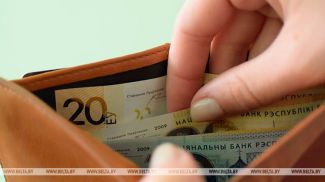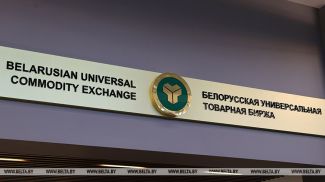MINSK, 10 May (BelTA) – Belarus is in negotiations with the World Bank on new projects in the sphere of utilities industry. The relevant matters were discussed as Prime Minister of Belarus Andrei Kobyakov met with representatives of the Board of Executive Directors of the World Bank Group on 10 May, BelTA has learned.
Andrei Kobyakov said: “The launch of new projects in the area of energy effectiveness and heat rehabilitation of residential buildings, water treatment and water supply, and solid waste treatment is being discussed. We expect further support for these areas from the World Bank.”
Projects to develop water treatment and water supply systems and use biomass for central heating are already being implemented in Belarus thanks to the World Bank's financial resources.
Speaking about reforms in the area of utility rates, Andrei Kobyakov noted that it is one of the matters Belarus had been unable to find complete understanding on in the course of negotiations on the new program with the International Monetary Fund. The speed of implementing the reforms is the stumbling block.
A lot of work has been done in Belarus in this area in the last few years. Full recovery of the cost of heating services has not been achieved so far. “Heating is a special matter. Our decisions on prices are tied to the need to profoundly modernize and restructure the entire sector. An overwhelming majority of heating energy users in Belarus cannot regulate how much they consume. And the delivery system still suffers from above-standard losses. We understand that it would be at least unfair to make people pay for what they cannot adjust and for what they haven't received,” explained Andrei Kobyakov. In his words, it is understood that it is necessary to move in two directions: in addition to raising the rates it is necessary to put efforts into reducing the costs and making the pricing formulas transparent.
Belarus is also interested in working together with the World Bank to implement projects in healthcare and education. “The improvement of the healthcare system, the provision of quality education services, which are in demand, directly influence living standards and help improve the human potential. It fully meets Belarus' development priorities,” said the prime minister.













